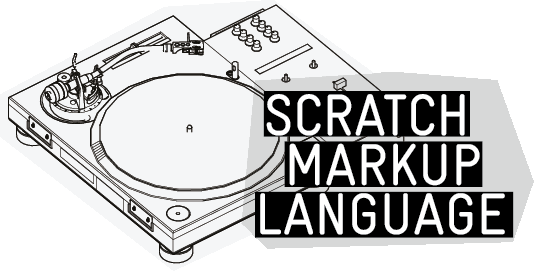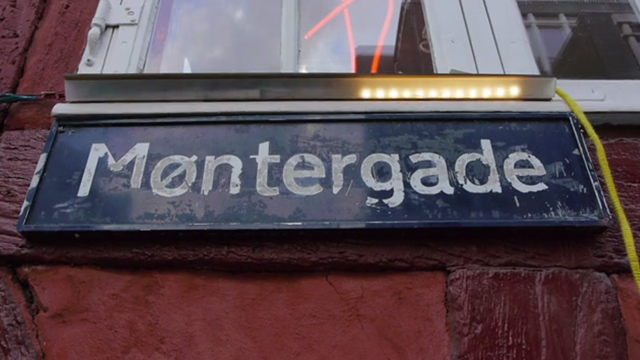

From FAT (Free Art & Technology):
SML (Scratch Markup Language) is a new file format for recording and replaying turntablism. We’ve developed open-source tools for accurately capturing the record and crossfader movements of a scratch DJ, allowing us to analyze, transcribe, and recreate scratch performances.
We want to do for turntablism what Graffiti Markup Language has done for tagging — especially teaching giant robot arms how to scratch.
At Art Hack Day we collaborated with other artists and programmers to develop the first prototypes of ScratchML. We used timecode vinyl to capture record movements ($10) and a hacked VCA fader + Arduino to record the crossfader ($30).
Scratch data was saved to disk as .sml and broadcast as OSC, which allowed other Art Hack Day participants to build visualizations based on what the DJ was scratching during the exhibition. The apps ranged from spinning-vinyl animations and TTM transcriptions to insane exploding 3D pizzas and a side-scrolling videogame shooter controlled by scratches.
Our goal is to make capturing, replaying, and sharing a scratch performance accurate and easy. SML files can be freely uploaded and downloaded from the ScratchML.com database. We’re particularly looking forward to improving the experience of learning how to scratch — e.g. by building apps that show you just how accurate your autobahn scratches actually are.
Throughout the week here on FAT we’ll be publishing ScratchML projects created during Art Hack Day, data specs, source code, hardware modification details and more.
Want to get involved? Join the ScratchML mailing list, follow us on GitHub, or email mewith any questions. More info to come at scratchML.com
Not sure what else to add.
I’m pretty sure that this is where all digital culture schools, programs, and practices will be heading — thinking about how to encapsulate data that we might normally take for granted, creating solutions very quickly and inexpensively, making it insanely fun, opening it all up for the world to use, and fostering big imaginations.



